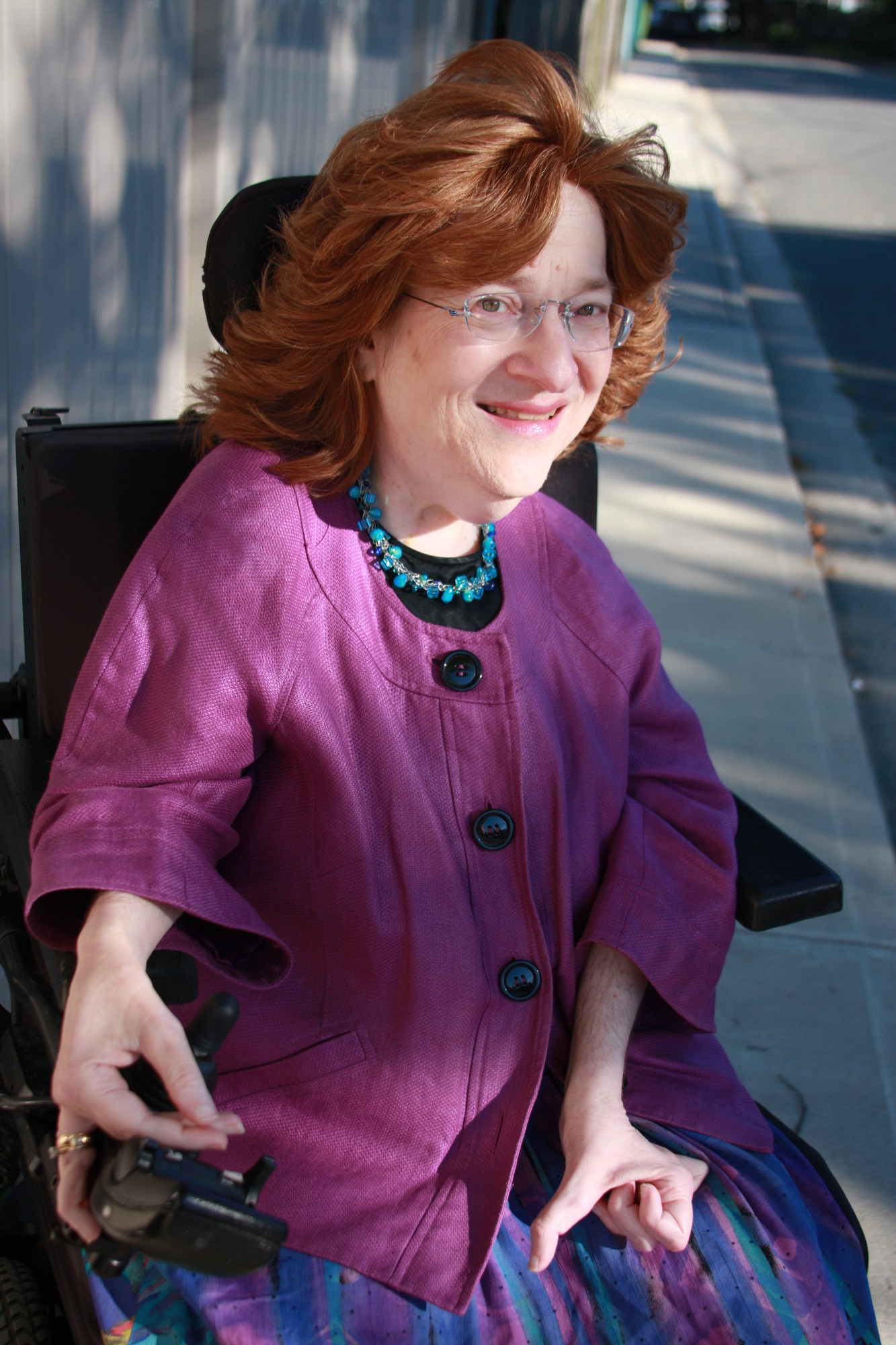Dispelling stereotypes, exerting independence
Polio victim writes about overcoming prejudices
Chava “Chavi” Willig Levy, a 62-year-old Woodmere resident who survived polio she contracted at 3-years-old, has always worked as a public speaker, singer and storyteller. Now she has included author to her list. Levy has recently published a memoir, “A Life Not with Standing.”
There were three motivations for writing her book, Levy said. “One is to dispel stereotypes of people with disabilities,” she said. “The second reason is what I call my independent dependence, which is depending on others to help me, while I am in charge of those people. Third, I affirm that people with disabilities are victimized by a prejudiced society, and not by the disabilities they have.”
Ira Mayer is a friend and one of several editors who reviewed her book. “Many of Chava’s friends have encouraged her for a long time to write her memoir,” Mayer said. “We knew from personal experience what a great storyteller she is. We knew that hers was an important story to tell, not just for polio survivors, but for anyone facing obstacles or challenges.”
Levy contracted polio four months after a polio vaccine was discovered in 1955. It took awhile for the vaccine to be distributed, Levy said. “Polio tends to strike lots of children in concentrated areas in the summertime,” she said. “There were lots of children in our bungalow community, and out of all of them, I was the only one to catch it. God choreographs much of what happens in this world. Clearly God had a plan for me.”
Levy spent much of her childhood away from family, who at the time lived in Brooklyn. “I spent a lot of time in hospitals, receiving iron lung treatments,” Levy said. “My breathing was compromised.”
She has spent most of her life in her wheelchair. “When I’m in mine, I feel liberated,” Levy said. “My arms are too weak to propel a non-motorized wheelchair. I can type a little bit. I hold my right wrist with my left hand to position for typing.”
Others try to refer to Levy herself as just a wheelchair, which Levy says limits her. “One time, as I was leaving an event at Carnegie Hall, this man said about me, ‘Let the wheelchair pass,’” Levy said. “I said to him, ‘You mean, the lady in the wheelchair.’ When he responded with, ‘Well, you’re a part of it,’ I responded with, ‘No, my wheelchair is a part of me.’”
Laurie Adler met Levy in 2002 and knows that her close friend is much more than just a person in a wheelchair. “She is a natural storyteller as hundreds of people have laughed and learned around her dining room table,” Adler said. “Chavi has exposed me to great musicians and authors, and has a deep understanding of what makes for great art. She brings this sense of precision and sense of wonder into her writing.”
To purchase Levy’s book, go to http://www.amazon.com/Life-Standing-Chava-Willig-Levy/dp/1492814954.

 44.0°,
Mostly Cloudy
44.0°,
Mostly Cloudy 




